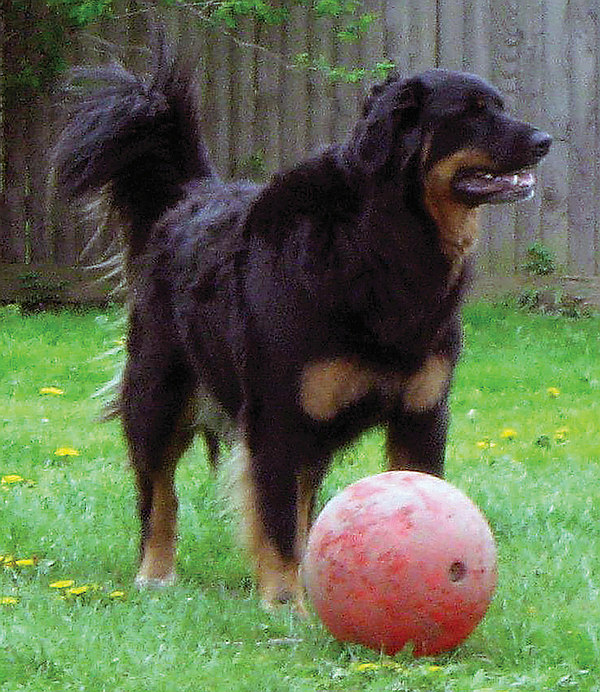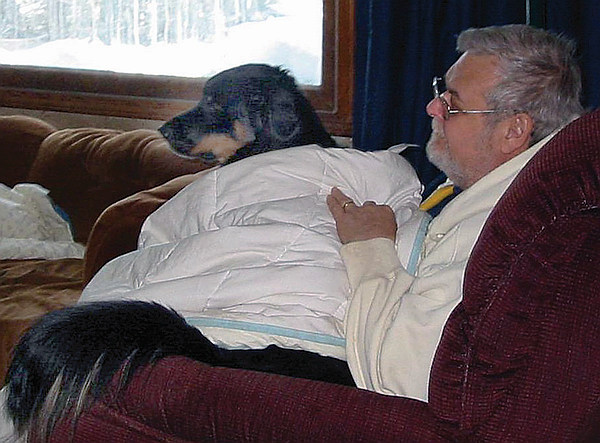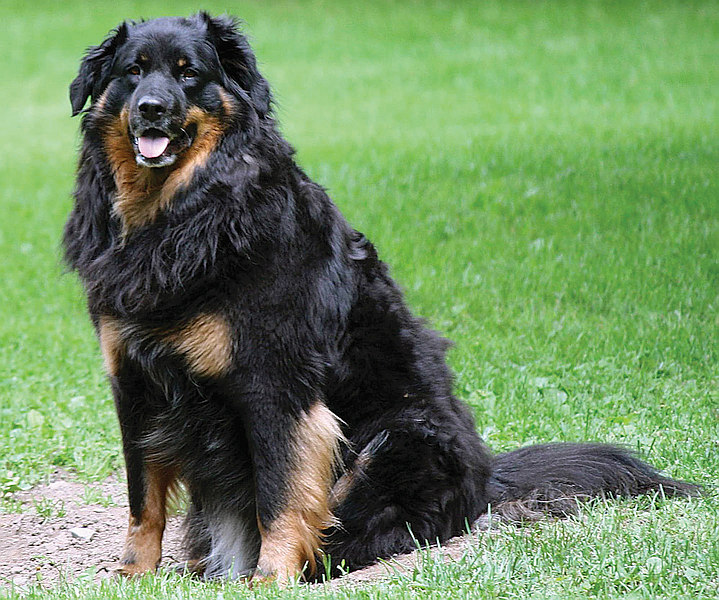By Judith Dawson

She was not the dog we wanted, the puppy we were looking for. She was all wrong for us. We named her Andi, and she was our dog for seven and half years.
My husband and I had buried our much-loved Rottweiler two weeks earlier, a dog I had when I met him, and we were “Just looking” at puppies at the city animal shelter. We turned a corner and there she was: The wrong age (5 months, give or take), the wrong size (large), the wrong hair (long, shaggy, and thick), the wrong breed (which was no breed at all), the wrong sex (female, not male). The kennel assistant told us she was a German Shepherd mix.
There must be some special training that enables people at the Animal Shelter to lie with straight faces.
When we first saw her, she was cowering in the back of her kennel. Then my husband talked to her, and she raised her head to look at him. She was his dog, and he was her person from that moment forward.
Andi was, to put it mildly, a handful. A street dog, she had been picked up, not surrendered. No one claimed her, and she had been at the shelter for about thirty days. She had obviously never been disciplined or housebroken and was an escape artist. She trusted no one (probably for good reasons), and in the beginning if you talked to her, she braced herself and cowered, waiting to be struck.
She was very wary of us for a long time. Two things never changed. First, she cowered if you approached her with any object in your hand–a stick, comb, brush, anything. My husband worked with her almost daily over the years, but that fear never changed. Second, her very favorite food was a raw potato. She stole potatoes and hid them all over the house for her entire lifetime. If that’s street dog behavior, I’ve never heard of it before.
She couldn’t be groomed because she was so afraid, so we resigned ourselves to living with a dog with the worst hairdo in the world. She was the Phyllis Diller of dogs until the day she died.
Her eyes were deep chocolate brown, and when you held her chin in your hand and looked into them, you could see that her early life had not been easy. My husband always said he could see into her soul. Looking back, I think she could see into his soul, too.
She dug under our backyard chain link fence. We fastened landscape timbers all around the outside of the fence. She dug under the fence AND the timbers. We countered with more landscape timbers fastened all around the inside of the fence. She gave up digging and countered by climbing over the fence. (If I hadn’t seen her, hind feet searching for a foothold, I wouldn’t have believed it.)
She sat outside the fence and never went anywhere. We countered with an electric fence inside the chain link fence. She–and we–went through the training process, we were assured it was safe, and she went out alone while we watched. She heard the buzz, kept walking, and got a shock which caused her to howl and urinate.
My husband ran to her and carried this big dog, her hair wet with urine, into the house. The fence came out after a very brief discussion with the installer. A six-foot-tall privacy fence was installed, and Andi was finally secure. Of course, by that time, in true Andi fashion, she was no longer interested in leaving and never made another attempt.
Her specialty was digging holes, holes for the sake of digging holes. She dug holes deep enough to sit in with only her head showing. She never buried anything, and once the hole was finished to her specifications she moved on to the next hole. It was her full-time passion.

My husband’s health deteriorated rapidly, and he went on dialysis. Andi was confused because she didn’t understand his new schedule. When he came home, she was confused by the new medical smells on him, and the bandages.
He would come home, sit in his recliner, and I would warm a quilt in the dryer and wrap it around him. He would quietly watch television for an hour or so until he recovered his strength. Andi watched from the kitchen doorway. This went on for two weeks, through seven treatments.
At the end of the second week, he came home and sat in his recliner. I brought the warmed quilt in, and she jumped into his lap–all seventy pounds of her. I wrapped the quilt around both of them, and she relaxed and leaned against him.
She learned his schedule, and they sat quietly together, watching television, every time he came home from dialysis. Somehow, she knew he needed the comfort she provided, and I believe he needed her. I would hear him softly talking to her while she cuddled against him.
My husband was hospitalized frequently, during which she waited and worried and was ecstatic when he came home. He kept telling me everything would be all right. He kept telling Andi everything would be all right.
Andi and I knew better.
Two years later, he came home from dialysis, sat with Andi, stood up and collapsed.
I hung her photo on the bulletin board across from his hospital bed so he would see her if he opened his eyes, and I went in every day and told him how much we missed him. I told him stories of Andi’s latest adventures (burying my wallet in the backyard, hiding the car keys under the deck, and getting trapped under the deck in the process). I know he heard me.
My husband died Christmas Day night. I came home and sat in his recliner for the first time ever, wrapped the quilt around myself and grieved for a life cut too short. I cried for myself, for my loss, my loneliness, my fears. Slowly and cautiously Andi crept into my lap. I wrapped the quilt around both of us, and we sat in that chair until the sun came up.
I slept on the living room sofa for about two months, Andi at my feet. When I found the strength to go into the bedroom, she followed and slept next to me on the bed, and that’s where she stayed. Every night I repeated my husband’s words to her: “It will be all right.”
She never went back to being the handful she once was but grew more and more quiet, thinner and thinner as time went on. She and I went back and forth to the veterinarian, but other than one attack of pancreatitis, there were no diagnosed health issues despite all sorts of tests.
Just before her eighth birthday she began to sleep on quilts at the foot of my bed, no longer able to jump onto the bed. One morning, I bent over to say good morning to her and found she had died quietly during the night.
The necropsy indicated sudden cardiac arrest. I think she grieved to death.
I took her body to the Veterinarian’s office for cremation, and when I left and kissed her good-bye, I whispered in her ear, “Andi, go forward. It will be all right.”
And it is all right, and I’m sure she’s with her master, both of them at peace. I hope they’re wrapped in a warm quilt, watching television.
Yes, looking back, she was the perfect dog for us. We just didn’t know it right away.


